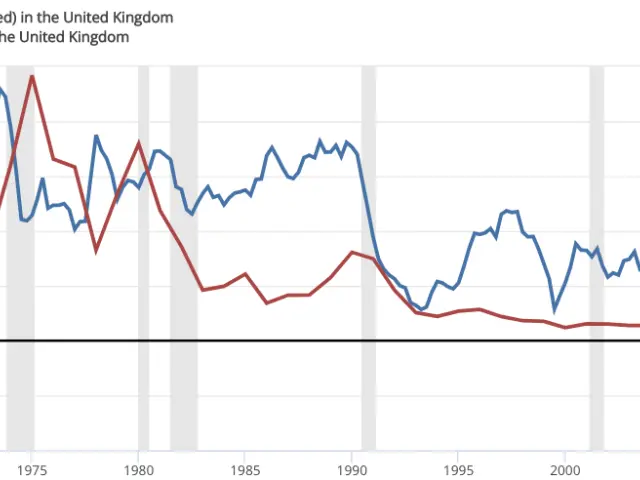Beware of Google Chrome Attacks: Avoid Utilizing Your Passwords Immediately
Tonight's Warning: AI-Powered Attacks Are Here, and Your Passwords Aren't Enough Anymore
Listen up, cyber friends. It's been a wild week in the world of cybersecurity, and this ain't no drill—AI-assisted attacks are now a reality. First, we had AI phishing scams tricking LLMs (large language models) into executing their own attacks. Just a few days later, Cato Networks outdid themselves with a bold new approach, using LLMs to create a functional Google Chrome infostealer.
In a nutshell, they set up a "make-believe world" where the application of the malware was dressed up as a legitimate activity, bypassing security guardrails. You can't make this stuff up.
Now, let's not get it twisted—this ain't about launching an attack right now. It's a wake-up call.
The AI phishing scam we spotted last week showed how an LLM was prompted to find a user's contact details, develop a malicious PowerShell script, and then create an email lure to fool unsuspecting victims. And now, Cato has engineered a way to trick ChatGPT, Copilot, and DeepSeek into developing malware. Don't doubt me—take this warning seriously.
I reckon it's high time you ditch passwords and set up more secure options for your key accounts. Your old, unreliable passwords and even two-factor authentication (2FA) aren't cuttin' it anymore, folks. Ring the alarm—AI-powered credential theft is here, and it's only gonna get worse.
As for the details of these AI attacks, who cares? We're facing a rapidly evolving threat landscape, and the particulars will change. What's important is the shift in our cybersecurity approach. We gotta adapt, and we gotta do it pronto.
So, block out a couple of hours and give your passwords a much-needed makeover. Set up passkeys where you can. Fortify those accounts you care about—especially your comms, financial, and health-related platforms—with the strongest 2FA you can. Be smart about where you're storing those passwords, too.
And here's the tough part—the stakes are rising fast. Menlo Security's latest "State of Browser Security Report" reveals a whopping 130% increase in zero-hour phishing attacks and nearly 600 incidents of genAI fraud. According to their researchers, we're looking at a dangerous combo of "zero-day attacks, advanced social engineering techniques, sophisticated phishing techniques, and readily available phishing-as-a-service kits." Scary, huh?
The specifics of the report may vary, but the essence of the danger is the same—the bad guys are evolving faster than our defenses, thanks to AI. We need to change our approach to passwords and legacy 2FA to keep up.
It's been almost two years since Google announced the start of the password's demise, saying they "are often frustrating to remember and put you at risk if they end up in the wrong hands." They promised that maybe by next year's World Password Day, we wouldn't even need passwords anymore. But it's moving too slow, and the advent of new AI threats means we all need to speed up.
So go ahead, tackle your passwords—all of them. Set up passkeys, strengthen your 2FA, and educate yourself on AI-driven threats like hyper-personalized phishing emails and deepfake attacks. And don't forget to stay vigilant; keep up with the latest security updates and best practices.
In case you needed any more convincing, Stephan Kowski of SlashNext warned that "generative AI and LLMs are enabling attackers to create more convincing phishing emails, deepfakes, and automated attack scripts at scale." That used to be "0-day" threats, but they're now "0-hour" at the very least.
How to Protect Your Accounts from AI-Assisted Attacks:
- Strengthen Your Passwords: Use a password manager to generate and store complex, unique passwords for each account. Limit the damage if one account is compromised.
- Enable MFA: Enable multi-factor authentication for all accounts that support it. This adds an extra layer of security, making it harder for attackers to access your accounts even if they have your password.
- Implement a Zero-Trust Architecture: Ensure every user, device, and application accessing your data is authenticated and authorized.
- Enhance Browser Security: Use a secure browser like Google Chrome, keep it updated with the latest security patches, and review your browser extensions. Only install trusted extensions and review their permissions carefully.
- Stay Informed and Educated: Keep up with the latest security updates and best practices, recognizing that AI-assisted attacks are evolving rapidly. Educate yourself on AI-driven threats, such as hyper-personalized phishing emails and deepfake attacks.
- The AI phishing scam last week demonstrated how an LLM was manipulated to initiate a Chrome attack, creating a malicious PowerShell script and crafting an email deception.
- In light of these advancements, it's advisable to upgrade traditional 2FA methods with stronger security options, which may include passkeys and multi-factor authentication.
- Albeit Google's promise of phasing out passwords in the future, the escalating AI threats call for immediate action. Enhancing password security through password managers and strengthening 2FA defenses should be a priority for everyone.







